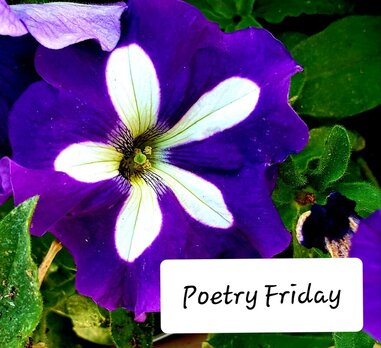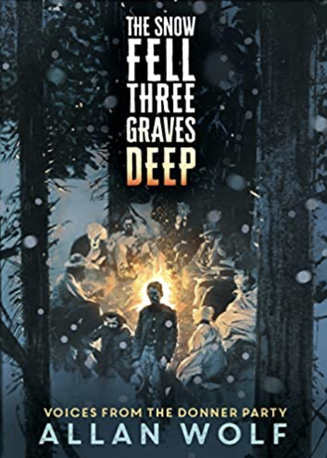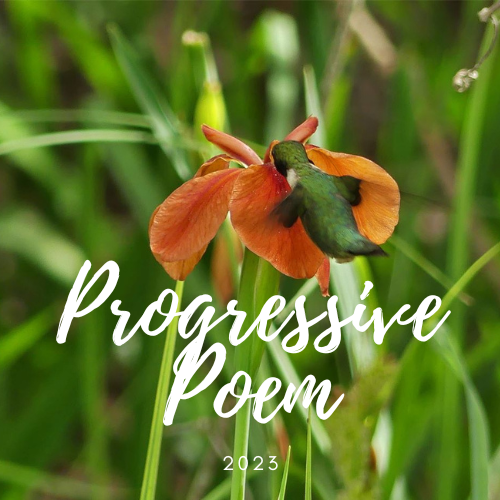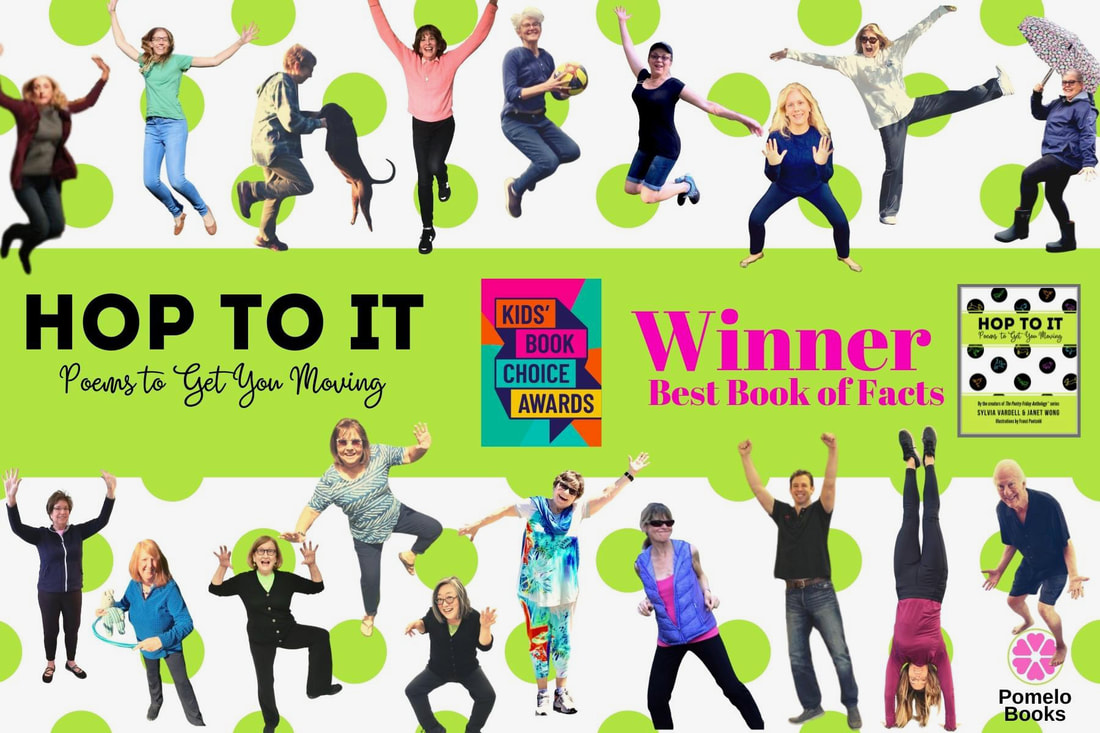 The Poetry Friday Round Up is over at Mary Lee at A Year of Reading  If you are looking for a book that examines the lives of the Donner Party in a poetic manner and historical detail, read THE SNOW FELL THREE GRAVES DEEP by Allan Wolf. He graciously agreed to some questions recently. What led you to write THE SNOW FELL THREE GRAVES DEEP? I’m always on the lookout for historical subject matter. Some event that folks think they know about. And as I’m a disciple of narrative pointillism, I seek out events with multiple witnesses from all walks of life. The main element of narrative pointillism is the exploration of a single event from multiple points of view. I’m also motivated by visual images (stage coaches, horse-drawn wagons, mortuaries, period clothing, hats, cannibalism, graveyards, rivers, zombie mules, sentient icebergs, rats that sing opera, etc). The images (and the objects within the images) can actually resonate with the heart of a story, and thus a harmonic relationship forms. That’s how I get ideas: by looking at a whole mess o’ stuff and then standing back to see some sort of order in the seeming chaos. To connect and combine and to reassemble. When you were researching NEW FOUND LAND, did something pop up that piqued your curiosity about the Donner Party? Yes, the research for New Found Land certainly led me to other ideas for many other books. In fact, my novel Zane’s Trace was a direct result. Researching one of the Lewis and Clark expedition members, I saw the name “Zane’s Trace” on an old map. I knew then and there, that would be the title of my next book. I wrote another novel about Sacagawea and her son, Jean Baptiste Charbonneau (never published) that led me to explore the Oregon trail and the Westward Expansion of the 1840s-1860s. I had to write a book that will never be published in order to write the book that was published. What was involved with researching for the book? What was the process? I read a bazillion books. Starting with the oldest and working my way up to the more modern. By doing this you get a feel for how the historical facts have evolved over time. Then you go back and reread the earlier books. The second reading is always so much richer, since by then you have a good context and you’ve built your “prior knowledge” base. Researching for historical fiction is an exercise in vetting resources. You begin to see which books are responsible for spreading mistruths and which books suffer from racial, class, and moral biases. I also deprived myself a bit. I would go out in the winter without a coat. I made a bunch of campfires. I interviewed a fellow who had intentionally starved himself. My friend, Klaus, who lives across the street from me, was diagnosed with cancer of the esophagus and died, all while I was writing this book. Klaus was a German and I modeled the book’s German character, Ludwig Keseberg, after him. Klaus was healthy and strong as an ox, but he couldn’t eat because of the tumor. So, I watched him pretty much starve to death. I dedicated the book to him. He was a great guy and a good friend. Was there anything you discovered that you chose not to put it in the book? Yes. Quite a bit. The actual details of what happened are complex and, frankly, tedious. There were countless rescue attempts, countless attempts to hike out, countless miles of wilderness covered. And the nearly ninety emigrants would separate into multiple parties, constantly diverging and reconverging like some kind of amoeba! It’s enough to make your head swim. I had to leave details out. Believe it or not, I actually left out one murder (that of a Mr. Wolfinger by another party member). There were already plenty of murders without it. I know it seems like an outrageous detail to leave out, but it just made an already complex constellation of events even more complex. How did your research inform the voices of your characters? The voices of Hunger, Tamzene Donner, and Patty Reed really resonated with me. Voice (and everything else) is born from research. You just have to listen. There is a staple story, in Donner Party lore, of nine-year-old Patty Reed maturely comforting her mother and accepting that she may not survive. The story may (or may not) be completely bogus, but it led me to think of Patty as an angel with a direct line to God. Then you have snow angels. Angels have wings to fly over mountains. You see how the connections begin to, well, snowball. My Tamzene Donner research included the big bonus of having access to her personal letters, so her voice was immediate. Hunger was such a perfect narrator. How did you know it would be the narrator. Hunger was just intuition. It probably came to me in the shower. (I call these “meteor showers” ‘cause the ideas just start dropping from the heavens.) Hunger is a narrator and a narrative device, the glue to give shape to the overall story. The iceberg played this part in The Watch that Ends the Night. The Newfoundland dog played this part in New Found Land. I needed a character that could easily place the story in context to history (past, present, and future). I’m writing a novel now in which the narrator is a lake. It was quite a cast of characters, how did you determine who you included? Were there characters that were easier or more difficult to write? All potential characters must go through an “audition” phase. I’m like a casting director. Looking for variety. Looking for foils. Characters that will play well off one another. And I want all races, ages, genders, and personality types represented. Another thing I look for is how characters “fit” with the setting and the props and the costumes. A character might have a doll or a pair of oxen, for example, that they can interact with and against. And I often look for two characters that work together as a team—I call this a pair-acter. (Think the Weasley Twins, or Luis and Salvador in Three Graves Deep). I appreciate that you shed light on the unjust and slave treatment of the Washoe and Miwok people. What suggestions do you have for readers to find out more? To get an excellent overview I recommend The Other Slavery: The Uncovered Story of Indian Enslavement in America by Andrés Reséndez. For a more complete list, I’ve included a bibliography in my own book’s back matter. The North American history of slavery, the Reconstruction, Westward Expansion, Jim Crow Laws, Civil Rights and the Black Lives Matter movement, plus the relentless, systematic, and systemic degradation of Asians, Mexicans, and Native Americans—the more you understand our history, the more you see how these are all sister stars in the same evil constellation. One of my favorite scenes in the book is when Tamzene Donner quotes Tennyson and you can clearly feel how things are unraveling. And this line, Flames devour the poetry as I bring the kettle to boil.” Chilling. And you might add, Tamzene is boiling water so she can cook the family dog. Oh, I liked that scene too. That was a fun one to write—Tamzene realizing how powerless her intellect is in the face of such primal suffering. As a poet myself, I often feel this way to some degree. Poetry in itself will not pay the bills. You cannot eat a metaphor. BTW, I was incredibly sad when Tamzene died. I really liked her character. (And of course, I knew she would beforehand but still…) Yeah. I was sad to see her go too. Do you have a favorite scene or quote from the book? The romantic in me really likes the “budding love” scenes between thirteen-year-old Virginia Reed and her boo, Eddie Breen. I’m also fond of the opening and closing scenes for their pleasing cinematic quality. A favorite quote comes from Hunger who says the the first line of the novel: “None of this is my fault.” If you were to give a reading, what might you read to the audience? I would like to read the passage that opens Part Six, on page 271, in which Hunger explains the stages of starvation. It is morbid but beautiful. I’ve been taking some classes at the Highlights Foundation with Cordelia Jense. We’ve been discussing what is the definition of a verse novel? What are your thoughts on the definition? (As the once chair of the CYBILS Award Poetry category, we wrestled with where the verse novels belonged. In Poetry or in Fiction or their own category.) Is it a “novel in verse” or a “verse novel?” Or shall we call it a “Versnel” or a “Noversel.” I like to think of my own longform style narratives as a “hybrid novel.” My editor, Elizabeth Bicknell, has called them “postmodern.” But what is it? I like to picture a spectrum of literature as vast and inclusive as the stars. Genres and taxonomies allow us to keep track of things, but they never tell the real story. I could argue that Billy Collins is a fiction writer who writes poems. I could argue that Thomas Wolfe and Virginia Woolf are poets writing novels. In my “novel,” The Watch that Ends the Night, the iceberg speaks in iambic pentameter. As the iceberg melts, so does the metrical length of the lines, from pentameter, to tetrameter, to trimeter, to a single iamb. I would call that poetry, I’d guess. And are verse and poetry one and the same? (I personally don’t think so, but that’s a topic for another time.) Words give a poem sense, while the space between the words give it resonance. Poets can arrange words based on craft, style, and clarity, just as prose writers do. But poets don’t have to stop there. Poets can arrange words based on prescribed patterns . . . or not. Poets can even arrange words wherever the words instruct them too. Space is key. Space between words. Space between lines. You can even remove a word, like you would remove a superfluous wisdom tooth. Line-breaks can be purposefully clunky or smooth. When a line breaks, the words turn. The poem’s rhythm may also turn. The poem’s pace may turn as well. The reader’s eyes, heartbeat, and attention all turn. (Bonus Fact: The word “verse” comes from the Latin, verso, to turn.) The poet chooses where the lines break. The power of ‘the space between’ is on display, in a big way, in the “verse novel.” Scenes (or beats) in the plot don’t require the same continuity that we find in prose. As the writer it can be easier to maneuver the narrative when you have spaces and turns in your toolbox. As the reader it can be easier to read and remain engaged. The reader’s eyes are actively engaged as the line-breaks urge them on. The reader’s mind gets to take smaller bites and needs less time to chew. I noticed you just released NO BUDDY LIKE A BOOK. Do you work on verse novels and picture books simultaneously or switch back and forth? I’m almost always working on multiple projects all at once. But this is largely due to the fact that I work in a variety of mediums. While researching a longer novel, I can always divert myself by writing poetry, song lyrics, and picture books. That said, there comes a point where I have to put in my earbuds, turn on the “smooth brown noise,” tie my leg to the desk, and get the project done. No messing about. I’ll get a head of steam and everything else falls away. Thank you, Allan, there is much here to consider. I borrowed The Other Slavery: The Uncovered Story of Indian Enslavement in America by Andrés Reséndez. Please sure to leave a comment below. I will be entering names in for two Grand Prizes at the end of the month along with other give aways. One will be a copy of this book.
Mary Lee
4/1/2021 04:26:37 pm
I am FASCINATED by the Donner Party story, and now even more so. I think I'm going to just go on an Allan Wolf binge-reading party in June. Thanks for the great interview...both of you! 4/1/2021 08:53:11 pm
Jone and Allan, thank you for this fascinating interview. I live in Colorado so the Donner story continues to play a part in the culture, from serious to the silly as people seem to want to remember but also handle their fears in different ways, don't they? I enjoyed the detailed explanation of how you looked at a story's design and approached the writing, Allan. I've read The Watch That Ends the Night and thoroughly enjoyed it, but now may need to return to read again with new eyes. Jone, thanks for the time taken to do this and your upcoming posts. I'll look forward to them every day! Happy April both of you! 4/2/2021 01:12:28 am
Thank you for sharing this interview. I don't know the story of the Donner Party - being from Australia - but am intrigued by this little glimpse to learn more and to seek out the book.
Eric Wolf
4/2/2021 05:18:33 am
What an insightful interview. Adds to the appreciation of the books itself. thank you both! 4/2/2021 05:26:00 am
Jone, thank you for this stunning interview. I was struck by all of it, but enjoyed the discussion about genre and literature as a spectrum and the discussion about narrators. 4/2/2021 06:17:10 am
Wow. Just wow, Allan, and thanks, Jone, for asking the questions. It is thrilling to hear someone talk about all that goes into a process like this, thrilling to think of this being a full-time job for someone. I have many more follow-up questions, but the most burning is, "What constitutes the smooth brown noise?" : ) 4/2/2021 07:53:01 am
I loved THE WATCH THAT ENDS THE NIGHT, and THE SNOW FELL THREE GRAVES DEEP looks just as good. I am probably more familiar with the legends and myths of the Donner Party than what actually happened.
Linda Mitchell
4/2/2021 12:54:08 pm
Jone, this is a stunning interview. Thank you for asking questions that I didn't even realized I needed answers to such as what Alan Wolfe's thoughts are on verse novels. There is so much here to enjoy....and wow, hunger as a narrator? Yikes! I love that Alan Wolfe gives us a description of his process -- absolutely fascinating. Well done, you! I love this post!
Linda Mitchell
4/2/2021 01:04:37 pm
PS. Don't think I that word "ox" in the interview passed me by....I totally caught it. 4/3/2021 05:03:02 am
THE WATCH THAT ENDS THE NIGHT is probably my favorite novel in verse of all time. Or whatever you want to call it. I call them nivs. And the Iceberg is my favorite voice in that one. Can't wait to read this one. Sounds chilling and haunting and morbidly beautiful--my favorite combo! Thanks, Allan, for the insights into your process. 4/4/2021 01:12:50 pm
Thank you, Jone, for coming up with such a bang-up interview. What fun. Metaphors be with you! Allan 4/5/2021 02:47:34 pm
I just loved reading about how Allan's creative brain works... and plays. I've learned much here today. Thank you both!
Janet Clare F.
4/14/2021 07:04:19 am
Once again I saved this for a time when I could give it full attention. While the topic is a hard one, I am eager to read and immerse myself in Allan's book. I know I will learn a lot and feel even more. Thank you Jone and Allan for this interview. Great questions, Jone!! They lead to so much insight and I love hearing Allan talk about poetry and verse and verse novels and all the rest. Billy Collins as a fiction writer who writes poetry, now that is a novel thought. Comments are closed.
|
AuthorAll photos and poems in these blog posts are copyrighted to Jone Rush MacCulloch 2006- Present. Please do not copy, reprint or reproduce without written permission from me. Categories
All
Archives
July 2024

2023 Progressive Poem
April 1 Mary Lee Hahn, Another Year of Reading April 2 Heidi Mordhorst, My Juicy Little Universe April 3 Tabatha, The Opposite of Indifference April 4 Buffy Silverman April 5 Rose Cappelli, Imagine the Possibilities April 6 Donna Smith, Mainely Write April 7 Margaret Simon, Reflections on the Teche April 8 Leigh Anne, A Day in the Life April 9 Linda Mitchell, A Word Edgewise April 10 Denise Krebs, Dare to Care April 11 Emma Roller, Penguins and Poems April 12 Dave Roller, Leap Of Dave April 13 Irene Latham Live You Poem April 14 Janice Scully, Salt City Verse April 15 Jone Rush MacCulloch April 16 Linda Baie, TeacherDance April 17 Carol Varsalona, Beyond Literacy Link April 18 Marcie Atkins April 19 Carol Labuzzetta at The Apples in My Orchard April 20 Cathy Hutter, Poeturescapes April 21 Sarah Grace Tuttle, Sarah Grace Tuttle’s Blog, April 22 Marilyn Garcia April 23 Catherine, Reading to the Core April 24 Janet Fagal, hosted by Tabatha, The Opposite of Indifference April 25 Ruth, There is no Such Thing as a God-Forsaken Town April 26 Patricia J. Franz, Reverie April 27 Theresa Gaughan, Theresa’s Teaching Tidbits April 28 Karin Fisher-Golton, Still in Awe Blog April 29 Karen Eastlund, Karen’s Got a Blog April 30 Michelle Kogan Illustration, Painting, and Writing |

